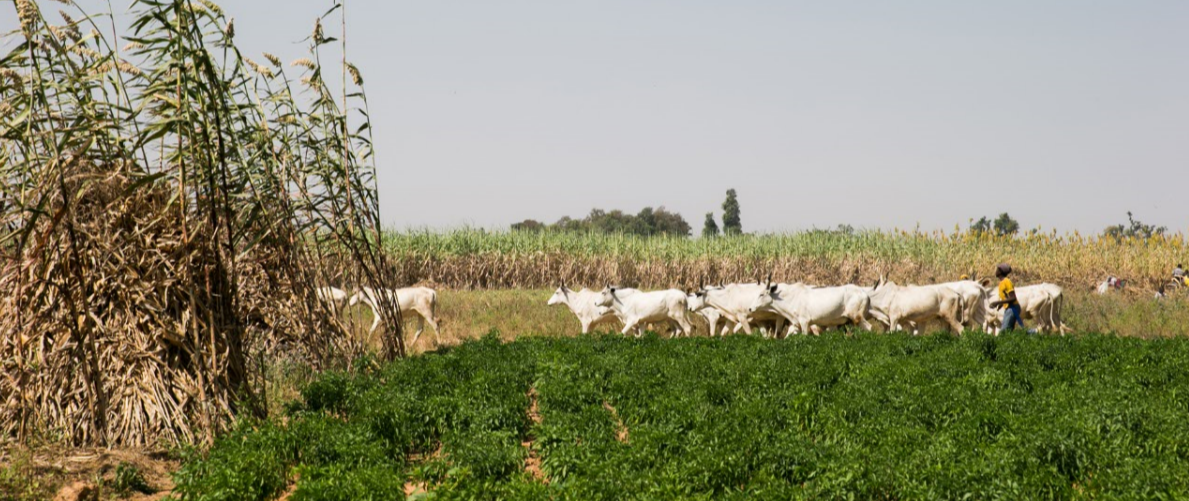



Zoetis builds sustainable veterinary diagnostic network and animal health infrastructure in Uganda, Nigeria and Ethiopia
Marks accomplishments in first year of the African Livestock Productivity and Health Advancement (A.L.P.H.A.) Initiative.Zoetis today reported on progress during the first year of its African Livestock Productivity and Health Advancement (A.L.P.H.A.) initiative to establish sustainable veterinary diagnostic networks and animal health infrastructure in Uganda, Nigeria, and Ethiopia. The initiative, funded by a $14.4 million grant from the Bill & Melinda Gates Foundation, aims ultimately to improve livestock health and positively impact farmers’ livelihoods in sub-Saharan Africa.
In year one of this three-year initiative, Zoetis established the main hubs and basic infrastructure required. This included hiring a team to address regulatory and technical issues; increasing the reliable supply of quality veterinary medicines, diagnostics and services; engaging with local farmers and veterinarians to ensure sustainable solutions; developing veterinary laboratory networks and conducting dialogue with government stakeholders to understand local requirements and needs, including regulatory issues.
“Healthy food can only come from healthy animals. Firstly, access to the right medicines, diagnostics laboratory facilities and education nationwide will help farmers raise healthier animals and secure more sustainable revenues, which is critical to the economic development of the region and the sustainable wellbeing of its population. Secondly, the development of the livestock value chain through modernised meat processing facilities will help ensure return on investments to farmers,” said Dr. Godwin Ejikeme Abonyi, President of the Nigerian Veterinary Medical Association.
Foundation for enhanced veterinary care
“Animal health is extremely important in contributing to sustainable economic development goals and business opportunities in Africa,” said Clint Lewis, EVP and Group President at Zoetis. “Farming and animal agriculture are major forms of livelihood for people in sub-Saharan Africa. By improving access to critical veterinary products and services, and building an infrastructure for quality animal healthcare, we can make a positive long-term impact.”
“We have seen first-hand the dire animal health situation in sub-Saharan Africa and have been working on all possible fronts to quickly establish the framework for success of the A.L.P.H.A. initiative,” said Dr. Gabriel Varga, Regional Director Africa at Zoetis and leader of the A.L.P.H.A. initiative. “We have made good progress and have also learned a lot. We are applying our learnings to achieve pioneering results in our first project year. Looking ahead, we are taking steps to ensure we can continue to build the infrastructure needed to help veterinarians and farmers to improve the health and productivity of their livestock and livelihoods.”
Dr. Varga identified the most significant achievements in year one against A.L.P.H.A. objectives:
- Improved availability of veterinary medicine: Zoetis submitted registrations for 17 vaccines in Uganda. Once approved, they will offer a large range of solutions for disease prevention in poultry and livestock. Zoetis also applied for product registration in Ethiopia and Nigeria.
- Medicalisation rates of livestock improvement and community education regarding animal disease: A.L.P.H.A. held a first of its kind roundtable discussion with 38 Nigerian officials, including representatives from the Ministry of Agriculture, the Chief Veterinary Officer, members of the country’s veterinary associations, private veterinarians and representatives of the farming sector to discuss local needs and potential solutions.
- Sustainable diagnostic infrastructure provision: Based on discussion and support from A.L.P.H.A, the Nigerian government upgraded a diagnostic laboratory field centre that will bring veterinary services, diagnostics and medicines close to the country’s farmers, and is opening a brand new diagnostic centre in the main poultry production area. These diagnostic hubs will provide tests and veterinary consultations from state and private veterinarians to local farmers. In a clear example of public-private partnership, A.L.P.H.A. contributed to the laboratories by providing technical expertise as well as materials and equipment for education and training.
- Professional development and business training courses to veterinary stakeholders: Zoetis facilitated publication of a quarterly veterinary newsletter supporting Nigeria and Uganda’s National Associations of Veterinarians. The publications provide a platform on which to share best practices and identify the needs of the country’s thousands of association members. The veterinary newsletters are unprecedented in both countries and were launched by the Minister of Agriculture in Uganda. Additionally, the company’s veterinary experts held several technical sessions for local veterinary service providers and farmers in partnership with local authorities, associations and NGOs to increase the level of care and knowledge of disease management and veterinary care.
- Development of a certified local distributor network: Zoetis entered into agreements with distributors in Nigeria and Uganda to improve the accessibility of veterinary medicines and technical services where they are needed.
- Scientific data validation: Zoetis established a third-party validation agreement with the University of Surrey (UK) to demonstrate the return on investment of enhanced animal health for local communities. In collecting epidemiological data and processing it into a large-scale study, the University of Surrey will provide scientific methodology and expertise to the three-year initiative.
Key learnings, barriers to animal health, and solutions
The A.L.P.H.A. initiative has uncovered a significant need for training and education on the use of veterinary products, and an overall understanding of the benefits of advanced animal care on a farm’s productivity. The initiative’s leaders identified a need to focus on when and how to vaccinate an animal; properly diagnose a disease with the help of veterinarians and other professionals; and how to treat sickness and restore productivity on the farm.
“We learned that initiating a vaccination program for animals will not help if the minimum of biosecurity conditions are not respected on farm. We are therefore organizing education and training sessions with smallholder farmers around biosecurity and disease prevention, the responsible use of medicines, and veterinary diagnosis,” added Dr. Varga.
To achieve this, Zoetis is partnering with local NGOs, including AFOS Foundation farmers training, to bring expertise and knowledge directly to smallholder farmers. “The A.L.P.H.A. initiative will positively affect my livelihood,” said Kasujja Abdu, a Ugandan poultry farmer. “By increasing production capacity on my farm, I should be able to earn more from it. This will allow me to face the challenges I get in my home, and ultimately should improve my way of living.”
The A.L.P.H.A. initiative has taken a “train the trainer” approach, beginning with the assumption that each veterinarian and farmer who participates in training will cascade the training to additional farmers in the community. In the next years Zoetis aims to have directly trained several hundreds of specialists to impact a farming community of over a million people.
The initiative also identified barriers to progress - specifically a limited number of quality medicines available to farmers, and a poor understanding of how to store and use medicines properly. Providing registered quality products will improve efficacy and safety, while providing critical support to veterinarians and farmers to advance the health and productivity of livestock.
Zoetis applies the principles of predict, prevent, detect and treat, to bring critical innovation. “We strive for sustainable improvements which will make a difference for smallholder farmers in these three markets. Key in our approach is the ownership we can create with veterinarians, authorities, distributors and farmers that starts with awareness and therefore education and training,” concluded Dr. Varga.
Sub-Saharan Africa is home to some of the largest livestock populations in the world – and the highest density of impoverished livestock farmers.1 Livestock is an essential asset to rural communities: improving its health, and the productivity of smallholder farmers are critical to achieving food security, in areas of exceptionally high animal and human disease incidence.
About Zoetis
Zoetis is the leading animal health company, dedicated to supporting its customers and their businesses. Building on more than 60 years of experience in animal health, Zoetis discovers, develops, manufactures and markets veterinary vaccines and medicines, complemented by diagnostic products, genetic tests, biodevices and a range of services. Zoetis serves veterinarians, livestock producers and people who raise and care for farm and companion animals with sales of its products in more than 100 countries. In 2017, the company generated annual revenue of $5.3 billion with approximately 9,000 employees. For more information, visit www.zoetis.com.









.PNG)


